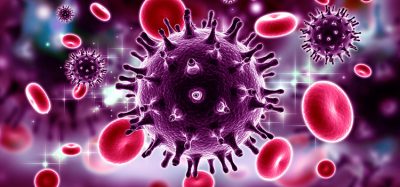Expert view: Biological therapeutics are becoming more popular, here are the reasons
Posted: 7 June 2018 | Dr. Paul Wylie (Head of Applications at TTP Labtech) | 1 comment
For most people, traditional High-Throughput Screening (HTS) represents large automation rigs and large libraries of small molecules screened against drug targets, however, the development of biological therapeutics has been gaining considerable pace for many reasons.
First, there is greater library diversity achievable within biologics discovery – you are not constantly screening against the same chemical library. Second, time to market is shorter and third, it is hard to create generic copies of biological molecules. The FDA will approve interchangeability only when both original and generic products deliver equivalent therapeutic effects – so new molecules must still undergo clinical trials to determine efficacy and safety. These factors represent a large barrier for the generics industry.
The drug discovery process for large and small molecule discovery has some subtle changes, which has led to the adoption of one approach over another. Rather than using chemists to create chemical derivatives of ‘hit’ compounds, molecular biology is more prevalent. For example, if you are developing an antibody therapeutic, then the hit antibody is sequenced, and a series of Fc engineering rounds undertaken to increase affinity and potency.
This by no means represents the end for small molecule screening, instead we are experiencing a coming together of both approaches. Antibody Drug Conjugates (ADCs) represent a new brand of therapeutics that link novel, or existing small molecule therapeutics to antibodies targeting diseased cells. ADCs have the potential to become magic bullets, decreasing the unwanted side effects of “dirty” small molecule therapeutics and personalising medicine to target different patient classes.
For early discovery teams, ADCs represent many challenges versus established small molecule strategies. For example, assay development and design is more complex. Liquid handling tools must cope well with sticky proteins, viscous liquids and cells. Ideally screening technologies have the versatility to perform both target binding and phenotypic applications.
Related topics
Antibodies, Assays, Clinical Trials, Drug Discovery, Drug Discovery Processes, Screening, Small molecule, Therapeutics
Related organisations
TTP Labtech Ltd
Related people
Dr. Paul Wylie









It is very impressive and amazing what TTF Labtech do. I was testing the Acumen demo in 2005 at Novartis and since then the company went a long way of advancing the drug discovery. Thank Dr. Paul Wylie, Ph. D and Dr. Richard Kim, Ph. D for your great work.